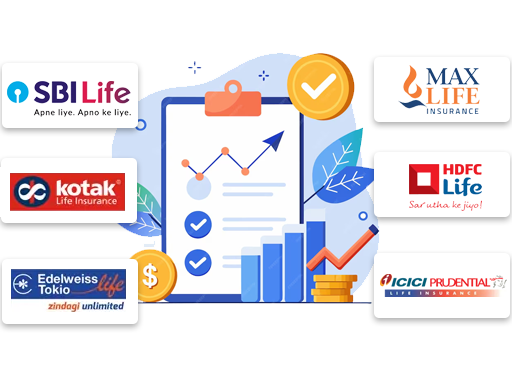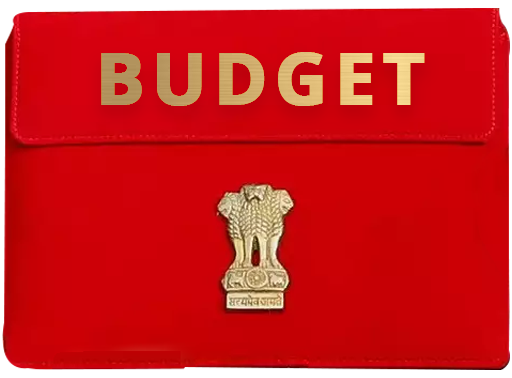- Understanding Whole Life Insurance
- Features Of Whole Life Insurance
- Factors To Keep In Mind

Himanshu is a content marketer with 2 years of experience in the life insurance sector. His motto is to make life insurance topics simple and easy to understand yet one level deeper for our readers.
Reviewed By:

Raj Kumar has more than a decade of experience in driving product knowledge and sales in the health insurance sector. His data-focused approach towards business planning, manpower management, and strategic decision-making has elevated insurance awareness within and beyond our organisation.
Updated on Jul 03, 2025 4 min read
All About Whole Life Insurance Policy
Whole life insurance is a traditional insurance that offers the insured coverage for their whole life. Whole life insurance provides permanent death benefit coverage for the life of the policyholder.
The sum assured like any other insurance is decided during the time of the policy purchase. The policy offers life coverage as long as the insured pays the premium. The maturity period of this insurance is up to 100 years. If the insured dies before that age, the beneficiary receives the decided sum assured and if the insured lives more than 100 years the insurance company pays mature endowment coverage to the insured.
Whole Life Insurance and Term Insurance
People often tend to compare whole life insurance with term insurance but it becomes difficult as they are comparing two totally different products. Whole life insurance is comparatively expensive as compared to term insurance as it offers the insured death benefit and combines the investment aspect along with the insurance called cash value which is not present in term insurance.
A term insurance policy provides coverage for a specific period (years), thus getting its name ‘term’ whereas in whole life insurance the coverage is lifelong up to 100 years.
Types of Whole Life Insurance
Whole life insurance is a life insurance that covers the whole life of the insured up to 100 years. There are various types of whole life insurance available in India. Listed are a few of them.
Non-Participating Whole Life Insurance
Non-participating whole life insurance offers a face amount feature and a level premium. It is a low-cost insurance policy that doesn’t pay any dividends or bonuses.
Participating Whole Life Insurance
In this type of whole life insurance, the premium that is paid by the insured or the policyholder is further invested by the insurance company. The revenue amount, if earned through these investments, is distributed as a bonus to all the policyholders. The bonus when declared becomes a part of the amount payable and is received by the policyholder as per certain declared terms and conditions such as, the bonus amount can be accumulated and paid in a lump sum, used as cash payouts or used to counterbalance the premiums that need to be paid by the insured, etc.
Level Premium Whole Life Insurance
In level premium whole life insurance, the premiums remain constant throughout the policy term and are to be paid regularly by the policyholder till the insured is alive.
Limited Payment Whole Life Insurance
Under the limited payment whole life insurance, the premium is paid for a limited period. The insurance will give a life cover for 100 years as any other whole life insurance. Since the premiums are paid for a fixed period and the amount is comparatively higher than the regular premium.
Single Premium Whole Life Insurance
Under this whole life plan, the premium amount is paid in one go. A large sum amount (sum assured) is paid as a payment guarantee to the beneficiary. Single premium whole life insurance offers a great benefit in case of the sudden death of the insured or policyholder.
Joint Whole Life Insurance
In this insurance, the whole life of any two people can be covered. Generally popular among couples, the insurance offers life coverage for two individuals and both have to pay the premium. The policy pays out the sum assured based on the first-death basis. The insurance expires after the death of one of the policyholders, the one that survived will get the sum assured. If the survivor wants life coverage, they need to opt for another whole life insurance.
Features of Whole Life Insurance
Whole life insurance has a lot of features that are available to its policyholders. Here are some of the features of whole life insurance:
Protection For Life
This insurance covers the life of the policyholder and is developed to financially protect the beneficiary upon the death of the insured as the sum assured will be given to them. With whole life insurance, there is an option to receive bonuses as well.
Loan Against Whole Life Insurance
Like all traditional policies, one can avail of a loan against their life insurance policy after the policy completes 3 years.
Stable Premium Rates
Depending upon the type of whole life insurance, the premium rates that need to be paid by the policyholder remain persistent throughout the term of the policy. So, the policyholder doesn’t have to bother about the constant fluctuations in the premium amount.
Tax Benefits
Whatever premium amounts are paid to the insurance company against the policy are exempted from tax according to Income Tax Act 1961, under section 80C and the maturity amount is exempt under 10(10D).
Benefits of Whole Life Insurance
Whole life insurance extends some great benefits to its policyholders which are as follows –
Protection For Policyholder
The most basic role of whole life insurance is that it offers a death benefit cover to its policyholder for up to 100 years of age and once the insurer completes the specified period the insurance company pays mature endowment coverage to the insured.
Financial Security For dependents
The plans ensure lifelong coverage to the policyholder and in case of their demise, it allows the insured to build financial security for their loved ones in their absence.
Fixed Premium Rates
As discussed, depending upon the type of whole life insurance, the premium amount that needs to be paid by the insurer is fixed throughout the policy term. External factors such as inflation don’t affect the premium amount.
Reduces Taxable Income
The premiums paid against the whole life insurance are exempted up to 1.5 lakhs from taxation under Section 80C of the Income Tax Act and the related benefits received by the insured are also not taxable under section 10(10D) of the same act.
Who Should Opt For Whole Life Insurance?
Any individual that is above 18 years of age can and should opt for whole life insurance. It gives you cover for your entire life, unlike certain life insurance that offers coverage for a certain duration. With whole life insurance, the policyholder can also build a financial corpus using an endowment plan, money-back plan or unit-linked plan for their loved ones ensuring financial security for them in case of the sudden demise of the insured.
Conclusion
There are a lot of insurance policies and plans readily available to a willing insurance buyer. It becomes difficult to understand what plan or policy to opt for and which will benefit you the best. Whole life insurance is a type of permanent life insurance policy that offers the insured a savings module known as the cash value while paying a fixed premium amount against the insurance policy.
If you want more clarity on whole life insurance or any other such plan and want to talk to a local agent or representative. You can fill in the form and get in touch with us. Our representatives will be able to give you personalised advice based on your needs.
Life Insurance Companies
Share your Valuable Feedback
4.6
Rated by 864 customers
Was the Information Helpful?
Select Your Rating
We would like to hear from you
Let us know about your experience or any feedback that might help us serve you better in future.


Written By: Himanshu Kumar
Himanshu is a seasoned content writer specializing in keeping readers engaged with the insurance industry, term and life insurance developments, etc. With an experience of 2 years in insurance and HR tech, Himanshu simplifies the insurance information and it is completely visible in his content pieces. He believes in making the content understandable to any common man.























Do you have any thoughts you’d like to share?